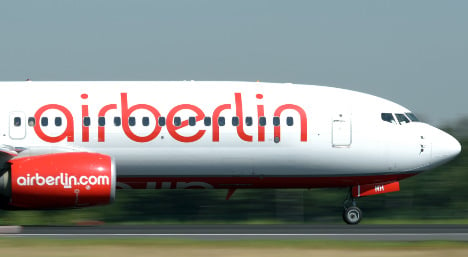Air Berlin said in a statement that it made a loss of €38 million from April to June, compared with a loss of €99.8 million in the same period last year.
The airline has managed to cut its losses but keep its revenues relatively stable at €1.1 billion in the second quarter of the year.
The company said it had also increased its revenue per passenger, while the number of routes flown in the second quarter fell from 520 in 2012 to 440.
“Our key numbers are moving in the right direction,” said chief executive Wolfgang Prock-Schauer. He also insisted that Air Berlin’s efficiency-boosting programme would “bear fruit later in the year.”
But he warned that “as a result of the generally muted economic conditions and the market environment, the ability to reach our targets is becoming increasingly challenging.”
Meanwhile, Air Berlin also announced that it had agreed to sell up to 11 aircraft to a subsidiary of China’s Minsheng Financial Leasing to reduce debt.
AFP/tsb



 Please whitelist us to continue reading.
Please whitelist us to continue reading.
Member comments